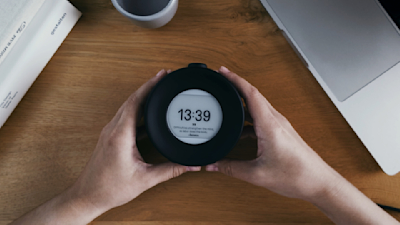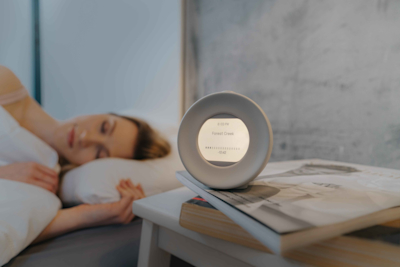
New Year, New Sleep Habits: Preparing for January
Embracing Positive Changes
The New Year always ushers in a wave of hope and the promise of fresh starts. Amongst the most popular and impactful resolutions one can make is the commitment to improving our health and well-being. However, before you make a list of resolutions, it might be helpful to recognize what you really want to achieve and how you plan to do it.
If you're on a mission to enhance your quality of life, prioritizing sleep is a crucial step. It’s actually one of the most important steps. We all know that sleep is the cornerstone of good health and overall well-being. And the truth is, it’s really difficult to achieve anything when you’re really tired.
This guide, infused with the principles of Mudita's mindful and healthy living ethos, will guide you through practical and effective advice for better sleep in 2024.
An Insight into Restful Sleep
To truly prioritize sleep, it's beneficial to understand the sleep cycle, including stages of light, deep, and REM (Rapid Eye Movement) sleep. Each stage plays a vital role in restorative rest. By aligning your sleep schedule with these cycles, often averaging 90 minutes each, you can wake up feeling more refreshed.
Now, here are a few points you should consider:
1. Embrace the Rhythm of Regularity and Establish a Consistent Sleep Schedule
One of the foundational pillars of good sleep hygiene is maintaining a consistent sleep schedule. Our bodies thrive on routine, and by setting a fixed time for going to bed and waking up, even on weekends, we align our internal clock for optimal functioning. This consistency not only improves sleep quality but also enhances overall daily energy levels.
2. Nurture Tranquility Before Sleep & Craft a Relaxing Bedtime Routine
Transitioning from the hustle of the day to the calm of the night is essential for quality sleep. Creating a serene offline bedtime ritual is your gateway to this transition. Whether it's indulging in a warm bath, losing yourself in a book, or practicing mindfulness through meditation or deep breathing, these activities signal to your body that it's time to wind down and prepare for restful sleep.
Here’s where your Mudita Harmony alarm clock can help. Both Mudita Harmony and Mudita Harmony 2 contain a Relaxation Library. Additionally, you can upload your own custom audio files to the device, for a truly personalized bedtime experience.
3. Screen Detox Before Bed
In an era where screens are omnipresent, it's crucial to be mindful of their impact on our sleep. The blue light from devices can significantly disrupt our natural sleep-wake cycle. By setting a digital curfew an hour, to 90 min before bed, you allow your mind to decompress and ready itself for a peaceful night's sleep.
That’s why, at Mudita, we’re always reminding our community about the benefits of a nightly digital detox.
4. Creating a Sleep-friendly Environment: Your Bedroom Sanctuary
Your bedroom should be a haven for rest. Investing in a quality mattress and pillows, using blackout curtains to eliminate light disturbances, and maintaining a cool, comfortable temperature can transform your bedroom into the ideal sleep environment. Your bedroom should also be a technology-free zone. For years, sleep experts have recommended that we remove TVs and laptops from our bedrooms. This includes phones as well. To improve your sleep environment it’s best to switch to a classic alarm clock, such as Mudita Bell or a mindful alarm clock, like Mudita Harmony
A sanctuary-like setting is conducive to uninterrupted and restful sleep.
READ: Simple Ways To Turn Your Bedroom Into A Sleep Sanctuary
5. The Vitality of Movement: Exercise for Better Sleep
Regular physical activity is a potent tool in improving sleep quality. Engaging in at least 30 minutes of moderate-intensity exercise daily not only boosts your overall health, but also enhances the depth and restfulness of your sleep. However, timing is key - avoid vigorous exercise close to bedtime to ensure it doesn’t interfere with your sleep.
READ: The role of exercise in promoting healthy sleep patterns
6. The Importance of Diet and Sleep
Did you know that what you consume can significantly impact your sleep? That’s right! Caffeine and alcohol, particularly close to bedtime, are notorious for disturbing sleep patterns. Being mindful of your intake of these substances, especially in the evenings, can lead to more restful and uninterrupted sleep.
7. The Power of Calm: Embrace Relaxation Techniques
For those battling racing thoughts or sleeplessness, relaxation techniques can be a game-changer. Practices like mindful breathing, deep breathing, progressive muscle relaxation (PMR), or guided meditations provide a pathway to calm the mind and ease into sleep. These techniques are especially useful for those who find themselves struggling to switch off at bedtime.
8. Managing Stress
Stress is a common sleep disruptor. Managing daily stress through techniques like journaling, yoga, or even engaging in hobbies can significantly improve your sleep quality. Remember, a relaxed mind is more conducive to a good night's rest. Techniques such as Cognitive Behavioral Therapy (CBT) for insomnia can also be effective in addressing stress-related sleep issues.
READ: What causes insomnia & how to treat it
10. The Role of Diet in Sleep Quality
Your diet plays a crucial role in how well you sleep. Foods rich in magnesium, calcium, and B vitamins can promote better sleep. Consider incorporating almonds, dairy products, and leafy greens into your evening meals. Conversely, heavy or spicy foods should be avoided close to bedtime as they can cause discomfort and disrupt sleep.
11. Finding the Right Nap Balance
While napping can be beneficial, especially for those with sleep deficits, it's important to keep naps short and not too late in the day. Long or late naps can interfere with nighttime sleep. Aim for 20-30 minute naps, early in the afternoon, to enhance alertness without compromising your nighttime sleep schedule.
READ: Nap like a PRO: The Secret of the POWER NAP
12. Seek Professional Help When Needed
If sleep issues persist despite adopting these habits, it may be time to consult a sleep specialist. Sleep disorders like insomnia, sleep apnea, or restless leg syndrome require professional intervention. A healthcare provider can offer tailored advice and treatment options, ensuring that your sleep health is managed effectively.
The Path to Healthier Sleep with Mudita
As you journey into 2024, remember that prioritizing sleep is a cornerstone of overall health and well-being. By incorporating these mindful practices and resolutions into your daily life, you can significantly enhance the quality of your sleep. However, always remember, while challenges may arise, persistence and adaptability are key to success.
In support of your journey, Mudita's mindful products like Mudita Bell and Mudita Harmony, including Mudita Pause and Mudita Moment, are designed to support your well-being as well as align with your sleep goals. We encourage you to embrace these tools to complement and enhance your sleep routine in order to embrace a year of restful nights and energized days.
Here's to a healthier, more vibrant you in 2024!
Related stories

New Mudita Harmony Update: Wake Up Inspired with Custom Quotes
Discover the new Custom Quotes feature in Mudita Harmony & Harmony 2. Personalize your wake-up routine with inspiration that starts your day right.

Why Boredom Is Good for Your Creativity & Mental Health
Boredom isn’t the enemy. It’s a path to creativity, meaning, and better mental health. Learn why unplugging from your phone can unlock a more fulfilling life.

What Science Says About the Best Alarm Sounds for Waking Up
Discover the science behind the best alarm sounds for waking up, and how Mudita Harmony and Mudita Bell help you rise refreshed every morning.
If you'd like to receive the best stories from our blog, keep up to date with our progress and get notified about our product releases and special discounts.